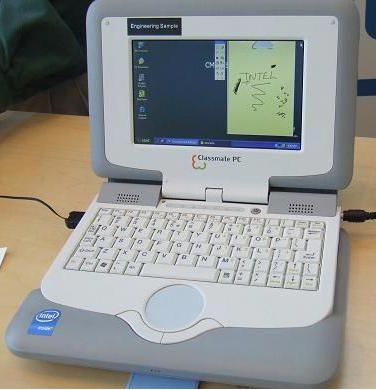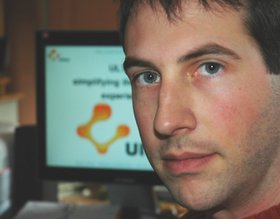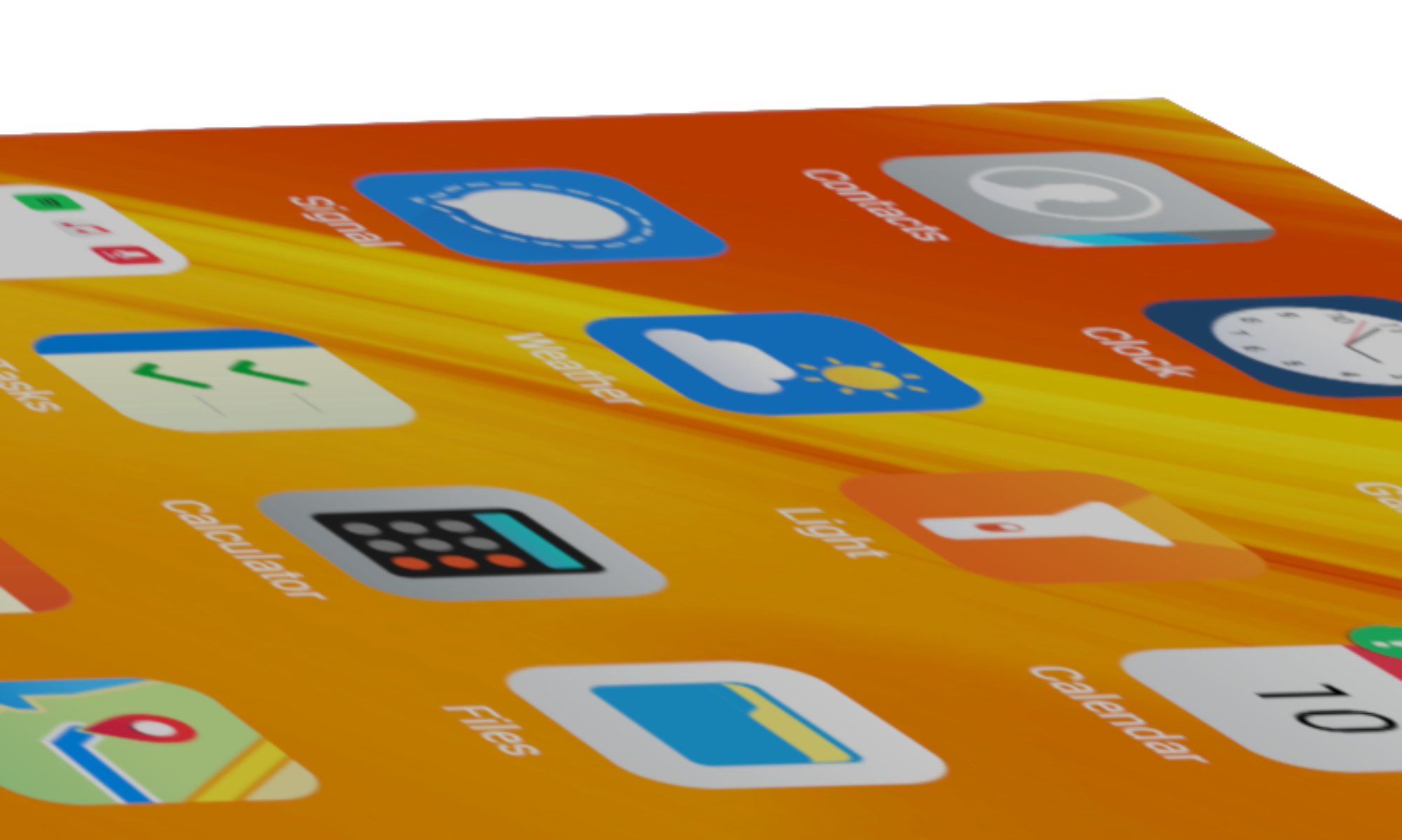Despite their excellent brand image, Apple is truly a close-source minded company. We all know about iTunes and the use of DRM, now it’s the iPhone turn: if you purchase an iPhone, good luck to use it with another phone operator than AT&T, or even use for its basic features (camera, wifi…). If you are outside the USA, it’s still worse: while you can easily order an iPhone on eBay, you have to wait they decide that European people can enjoy the iPhone too. The good news, is that smart people are working legitimately to circumvent these awful practises. As a result, “DVD Jon” already posted how to unlock the iPhone and use its basic capabilities (such as Wifi access and iPod player). Others are already providing ways to access the iPhone and modify it (and they need help!). The next step is to get support for any SIM card, which will let iPhone owners to just… use the iPhone as a cell-phone! And don’t forget the Nokia N95.
Is it still worth going to school?
I first wondered about this question considering my personal case: since I was young, at least since 8 years old, I have been attracted by computers and software. I learned by myself a lot, mostly in books and magazines, but at this time there was still no Internet, no Wikipedia, so you couldn’t learn everything. When I went to college and passed my “baccalaureat” (this is the exam you pass in France when you are 18, just before going to University), I had always the maximum note in computer sciences because it was so… simple. Then I went to Uni and had still to study physics, chemistry and mathematics for 2 years before specializing in computer sciences and software engineering. During this period, I (and all others) became a kind of specialist of n-dimension spaces, vectorial spaces, Schrödinger and Maxwell equations, orbitals, neutrophil and electrophil molecule sites, pKa, pKb and a mountain of things that were very interesting and exciting. But for computers sciences, I only got 2hours a week + a specialization in OO programming. Serious things only started the next three years when I was able to end (totally) with Physics, Chemistry and Maths, and focus on software development and related. At this stage I was 21. I really started to study computers sciences and learn something about it at 21! Of course, I started to learn a lot by myself on the net too (and still doing!), but I had to start doing something in my life. It’s already been a long time I wanted to start a software project/company and at 25 years old I was able to do so. I really think I could have started sooner. I like Physics, Maths and others, but really, I was in computer sciences since 1982, and couldn’t participate sooner while I’d had loved to do so. Now with Ulteo I’m meeting software developers who, at 18 or 20, have the same or better programming skills of people who, in the past, usually had to wait to complete their cursus and be 24 or 25 and acquire some experience for several years in real situation. These young guys I’m meeting (and trying to hire!) have been into software development for years, learned everything on the Internet (and also learning with others on Internet). They are going to school at the same time, because here, you have to get your exams and diplomas or your salary will be miserable. They are just going to school to have the University or school diploma and get a good position. Is it serious? The only benefit they get by continuing to go to school is to learn something else than computer sciences, just for their personal benefit.
Intel/Mandriva Classmate PC reviewed
Linux.com’s Tina Gasperson has reviewed the Intel 400USD Classmate PC (laptop) that is targetted to South and Central Americas. Apparently, she and her family enjoyed.

Favorite PDA?
 Recently, I have been looking around for a PDA. Not that I really need it: it’s been so many years I’ve kept on using paper for my agenda, or to take notes and maitain my todo list… Anyway, although I never had a PDA so far, I always loved them. So I started to wonder why I don’t a PDA yet, and while at the same time I love them!? I think I love them because it’s kind of an ideal device. It brings the concept of *personal* computer to its highest. You can bring a PDA everywhere you go, and now it’s even supposed to have the capability to communicate with the rest of the computer world. So why the hell I still don’t have a PDA!!? Actually, I think I had already two “ideal PDAs”… Once was a Toshiba Libretto 100CT that I used at the early Mandrakesoft times, because I spent much time travelling on train between my home and Mandrakesoft’s headquarters. The 100CT is a marvelous machine, very outdate though. I could run Mandrake Linux on it, and catch emails (and even browse the web a little) by connecting it to my cell-phone. It was very small so I could just put it inside my document bag. But I had to abandon it because it was too limited in performance and it’s been harder and harder to load it with an up to date Linux system. One year ago, I was eventually seduced by a small “ultra-portable” ASUS laptop that I can still carry with me everywhere I have to go to meet people for the Ulteo project. It’s very nice, has wifi and is very fast. I couldn’t find an easy way to connect it to the net through my cell though. Which is kind a regression compared to my Tosh. But still it is not *really* what I would imagine as an ideal Personal Digital Assistant. So I started to look around for an ideal PDA. And I discovered a strange world where I couldn’t really find what I need. First deception was that most of these PDAs are now provided with the Microsoft Windows Mobile OS, which is something I obviously can’t support. Some others are provided by other proprietary OSes but seem to rather limited as well (or did I miss something?). I could find a few appliances that run Linux (such as a Nokia…) but as far as I understand, most of the time it is loaded with a limited version of Linux that can run their exotic processor. Of course I heard of the Yopy a few years ago, and I put great hopes in it. But it turned to be rather deceptive. Another aspect of the PDA world is that nowadays the frontier is thin between the ones that do only agenda, the ones that are a real PC, the ones that can communicate through wifi and or gsm/gprs/umts, the ones that provide a GPS and a map, the ones that can take pictures or videos. Sometimes they provide several of these options at the same time, but I’m not sure I even saw any that offers *all* the options at the same time. So I’m really stuck at a point where I couldn’t choose what fits my needs: a PDA that would be not too big (I could bring it in my coat), that would offer a small keyboard (or virtual keyboard on the screen), that would offer wifi access, that could connect to gsm/gprs(/umts) directly or through a cell-phone, that would have a camera, and that would offer me a real (preferably Linux) OS where I could run a real webbrowser (even with java plugin), a VNC viewer and a ssh client. And that could play ogg/mp3 files of course. So if you have a PDA to recommend or share you experience with a Linux PDA, just tell me! 🙂
Recently, I have been looking around for a PDA. Not that I really need it: it’s been so many years I’ve kept on using paper for my agenda, or to take notes and maitain my todo list… Anyway, although I never had a PDA so far, I always loved them. So I started to wonder why I don’t a PDA yet, and while at the same time I love them!? I think I love them because it’s kind of an ideal device. It brings the concept of *personal* computer to its highest. You can bring a PDA everywhere you go, and now it’s even supposed to have the capability to communicate with the rest of the computer world. So why the hell I still don’t have a PDA!!? Actually, I think I had already two “ideal PDAs”… Once was a Toshiba Libretto 100CT that I used at the early Mandrakesoft times, because I spent much time travelling on train between my home and Mandrakesoft’s headquarters. The 100CT is a marvelous machine, very outdate though. I could run Mandrake Linux on it, and catch emails (and even browse the web a little) by connecting it to my cell-phone. It was very small so I could just put it inside my document bag. But I had to abandon it because it was too limited in performance and it’s been harder and harder to load it with an up to date Linux system. One year ago, I was eventually seduced by a small “ultra-portable” ASUS laptop that I can still carry with me everywhere I have to go to meet people for the Ulteo project. It’s very nice, has wifi and is very fast. I couldn’t find an easy way to connect it to the net through my cell though. Which is kind a regression compared to my Tosh. But still it is not *really* what I would imagine as an ideal Personal Digital Assistant. So I started to look around for an ideal PDA. And I discovered a strange world where I couldn’t really find what I need. First deception was that most of these PDAs are now provided with the Microsoft Windows Mobile OS, which is something I obviously can’t support. Some others are provided by other proprietary OSes but seem to rather limited as well (or did I miss something?). I could find a few appliances that run Linux (such as a Nokia…) but as far as I understand, most of the time it is loaded with a limited version of Linux that can run their exotic processor. Of course I heard of the Yopy a few years ago, and I put great hopes in it. But it turned to be rather deceptive. Another aspect of the PDA world is that nowadays the frontier is thin between the ones that do only agenda, the ones that are a real PC, the ones that can communicate through wifi and or gsm/gprs/umts, the ones that provide a GPS and a map, the ones that can take pictures or videos. Sometimes they provide several of these options at the same time, but I’m not sure I even saw any that offers *all* the options at the same time. So I’m really stuck at a point where I couldn’t choose what fits my needs: a PDA that would be not too big (I could bring it in my coat), that would offer a small keyboard (or virtual keyboard on the screen), that would offer wifi access, that could connect to gsm/gprs(/umts) directly or through a cell-phone, that would have a camera, and that would offer me a real (preferably Linux) OS where I could run a real webbrowser (even with java plugin), a VNC viewer and a ssh client. And that could play ogg/mp3 files of course. So if you have a PDA to recommend or share you experience with a Linux PDA, just tell me! 🙂
Linex, the success of a regional policy
Linex, a version of Linux, has been successfully developed and deployed in the educational field by the regional government of Extremadura, Spain, Europe. Discover how this project, by getting rid of the Microsoft dead end, has made Extremadura one of the most equipped region in computers and Internet access : watch this Euronews video (English) (French version).
Classmate PC: 400USD laptop for education by Intel
 Equipped with a Celeron M 900 MHz, 256 Mb DDR2, 1-2 Go Flash memory, Intel 915GMS video chipset, a 7″ screen (800×480), a waterproof keyboard, Wi-Fi 802.11g and Eth ports, the Classmate PC weights 1.3 Kg and costs 400USD, more than the OLPC’s XO. Anyway, this is a major initiative, espcially because Intel is behind it and because it’s targetted to the south-American education sector which should allow an easier access to computing for millions of students and teachers. What else? It’s preloaded with XP and/or Mandriva Linux and/or Metasys Classmate. The choice apparently depends on needs and region. I can just hope that the price varies depending on the installed OS.
Equipped with a Celeron M 900 MHz, 256 Mb DDR2, 1-2 Go Flash memory, Intel 915GMS video chipset, a 7″ screen (800×480), a waterproof keyboard, Wi-Fi 802.11g and Eth ports, the Classmate PC weights 1.3 Kg and costs 400USD, more than the OLPC’s XO. Anyway, this is a major initiative, espcially because Intel is behind it and because it’s targetted to the south-American education sector which should allow an easier access to computing for millions of students and teachers. What else? It’s preloaded with XP and/or Mandriva Linux and/or Metasys Classmate. The choice apparently depends on needs and region. I can just hope that the price varies depending on the installed OS.
About me (cliquer ici pour la version Française)
 I was born in 1973 and got my Master’s degree in Computer Sciences (Systems & Networks) at University of Caen, Normandy in 1997.
I was born in 1973 and got my Master’s degree in Computer Sciences (Systems & Networks) at University of Caen, Normandy in 1997.
In 1998 I created the popular Mandrake-Linux system which was the first Linux distribution to care about ease of use (6 years before Ubuntu actually). Then I co-founded MandrakeSoft which went public in 2001. Mandrake-Linux later became Mandriva Linux with the aquisition of Conectiva in Brazil, it was acquired in 2010 by a Russian Investment fund.
 There is a chapter about the early story of Mandrake-Linux and Mandrakesoft, and how we took part of the Linux & Open Source revolution, in this excellent book “Rebel Code” by Glyn Moody (here at Amazon, here at Google Books for a preview). I was also interviewed about Mandrake more recently, at FOSSForce.
There is a chapter about the early story of Mandrake-Linux and Mandrakesoft, and how we took part of the Linux & Open Source revolution, in this excellent book “Rebel Code” by Glyn Moody (here at Amazon, here at Google Books for a preview). I was also interviewed about Mandrake more recently, at FOSSForce.
Starting from 2007, I’ve developed the Ulteo project, a multi-platform application and desktop delivery solution for corporates, with partners. The project was aquired in 2014 by AZNetwork SAS.
In 2015 I’m working on building a “Startup Factory” with partners, called “NFactory”, launching September 2016. I also have new projects linked to mobile development, Artifical Intelligence and chatbots in my spare time.
I’m generally performant at envisioning and bootstraping new projects from mostly nothing. I’m especially interested in participating in potentially disruptive projects in the software industry (AI…) and/or in the “energy field” (photovoltaics, electricity storage, electric cars).
Since 2016 I’m an Advisor for the CommonSearch: project, a radically transparent search engine for the web.
In 2017 I started /e/, a mobile phone OS and associated web-services with respect of user’s privacy. /e/OS is a fully “unGoogled” Android from the core OS to online services. This is a non-profit project, in the public interest (see the crowdfunding campaign here). Then I created Murena, the company that sells smartphones with /e/OS and the Murena private cloud.
I’m defending the idea that a “Sovereign operating system” is a non-sense in 2019. Instead, all the “digital chain” must be considered, and Open Source is key in those matters. I developed these ideas in a chapter writen for a Springer Book: “Reflections on Operating Systems” (ISBN 978-3-319-97226-8).
Recent press review:
- a video discussion at the 2022 Nextcloud Conference
- my presentation of /e/OS at the 2022 Nextcloud Conference
- article about /e/OS at ZDNet
- a video interview at Coder Stories
Contact: Please feel free to contact me by email at gaelduval at indidea dot org, if you want to discuss something or just say hello! 🙂
Find me on:
– LinkedIn: https://www.linkedin.com/in/gaelduvalprofile/
– Twitter: https://twitter.com/gael_duval
– Facebook (pro): https://www.facebook.com/
– And on Wikipedia (yes!)
Personal interests:
– Music (listening, playing guitar, piano & drums, recording/producing) & Arts
– Wine (tasting, producing)
– Physics/Astronomy…
– many others actually 🙂
Official pictures of Gaël Duval ! (images licence: CC BY-SA 4.0)



